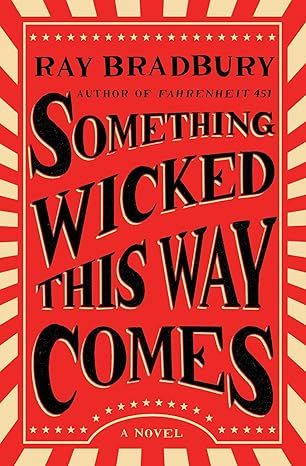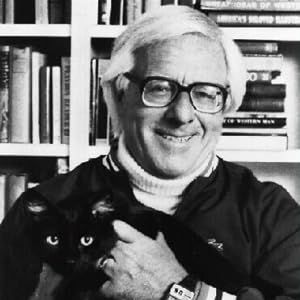Something Wicked This Way Comes: A Novel
4.4 out of 5
6,928 global ratings
One of Ray Bradbury’s best-known and most popular novels, Something Wicked This Way Comes , now featuring a new introduction and material about its longstanding influence on culture and genre.
For those who still dream and remember, for those yet to experience the hypnotic power of its dark poetry, step inside. The show is about to begin. Cooger & Dark’s Pandemonium Shadow Show has come to Green Town, Illinois, to destroy every life touched by its strange and sinister mystery. The carnival rolls in sometime after midnight, ushering in Halloween a week early. A calliope’s shrill siren song beckons to all with a seductive promise of dreams and youth regained. Two boys will discover the secret of its smoke, mazes, and mirrors; two friends who will soon know all too well the heavy cost of wishes…and the stuff of nightmares.
Few novels have endured in the heart and memory as has Ray Bradbury’s unparalleled literary masterpiece Something Wicked This Way Comes. Scary and suspenseful, it is a timeless classic in the American canon.
352 pages,
Kindle
Audiobook
Hardcover
Paperback
Audio CD
First published October 23, 2017
ISBN 9781501167713
About the authors
Ray Bradbury
In a career spanning more than seventy years, Ray Bradbury, who died on June 5, 2012, at the age of 91, inspired generations of readers to dream, think, and create. A prolific author of hundreds of short stories and close to fifty books, as well as numerous poems, essays, operas, plays, teleplays, and screenplays, Bradbury was one of the most celebrated writers of our time. His groundbreaking works include Fahrenheit 451, The Martian Chronicles, The Illustrated Man, Dandelion Wine, and Something Wicked This Way Comes. He wrote the screen play for John Huston's classic film adaptation of Moby Dick, and was nominated for an Academy Award. He adapted sixty-five of his stories for television's The Ray Bradbury Theater, and won an Emmy for his teleplay of The Halloween Tree. He was the recipient of the 2000 National Book Foundation Medal for Distinguished Contribution to American Letters, the 2004 National Medal of Arts, and the 2007 Pulitzer Prize Special Citation, among many honors.
Throughout his life, Bradbury liked to recount the story of meeting a carnival magician, Mr. Electrico, in 1932. At the end of his performance Electrico reached out to the twelve-year-old Bradbury, touched the boy with his sword, and commanded, "Live forever!" Bradbury later said, "I decided that was the greatest idea I had ever heard. I started writing every day. I never stopped."
Read more
Reviews
michael chad cleary
5
Great for any Bradbury fan!
Reviewed in the United States on November 8, 2023
Verified Purchase
Ray Bradbury is a bit polarizing in my opinion. People either love his work or hate it. As a writer myself I am a fan of his work. I watched the movie many many years before I cracked open the book and I have to say the movie doesn't follow the book very closely. I would go out on a limb and say a fan of the book may be disappointed in the movie and a fan of the movie may be left scratching their head over the book.
Bradbury has a tendency to be very poetic in his complex descriptions in this book leaving a leisure reader to likely be put off by his wording. I don't consider this to be light reading or a children's book. It is my opinion the movie was much scarier than the book--something I find to be unusual. One particular feature of this novel is the short chapters and large print. I don't care to read chapters that drone on for twenty five or thirty pages because I fell as though I'm getting nowhere. Bradbury does a great job of moving the story and the book along with the chapter layout.
You will get lost in this story. It's bizarre, it's fantastical, and very much what one would expect from RB if you have read any of his other work. The dialogue is a bit hard to follow because it phases in and out of spoken and internal. Will seems to be the main character as he is in the movie with the reader being exposed primarily to his thoughts and actions without excluding too much of the other characters. In many ways I feel the movie does a much better job of revealing Mr. Dark's character than the book, but this may be due to RB's goal of concealing that personality.
I would highly recommend this book to someone looking to be challenged by a work that fluctuates frequently between prose and a near poetic style. Believe me it will challenge you! It is a unique work that demonstrates Bradbury's willingness to break the normal practice of fiction writing. If you are a writer I would suggest you pick this one up to perhaps inspire you to break out of some of your own rigid and routine habits.
Read more
19 people found this helpful
dalethepaleone
5
An American Classic
Reviewed in the United States on July 24, 2013
Verified Purchase
Ray Bradbury, like the picturesque old libraries or city halls found in many a marginalized American small town, was so ubiquitous that I often felt he was taken for granted. He was such a fixture of the literary landscape for so long, lauded as one of our great prose stylists and narrative dreamers so often, that it was easy to forget he was there. Comfy old chair-like ubiquity aside, Mr. Bradbury's work remained moving, vital, and fresh right until the very end.
Something Wicked This Way Comes has been a favorite novel of mine since my early twenties, when I finally got around to reading it. On the surface, Bradbury's nostalgiac Middle American nightmare is simply a dark and evocative fable of childhood; a precursor to every evil-threatens-a-small-town novel written by Stephen King or Dean Koontz or anyone who followed in their footsteps. It is the story of two boys--Will Halloway and Jim Nightshade--twelve years old, on the cusp of adulthood, suddenly faced with temptation and damnation when a devilish autumn carnival invades their picturesque little Midwest town. Little by little, Will and Jim discover that the delights promised by the carnival (led by the sinister Mr. Dark, covered in moving tattoos representing the many souls he's dragged to perdition) are thorny roses to say the least, wishes granted with terrible fine print folded into their infernal contracts.
In deft, evocative, poetic prose, Bradbury paints a vivid and memorable portrait of a serene if static world invaded by a malign and alien influence, insidious precisely because it uses the all-too-human frailties of the townsfolk against them. Perhaps most impressive is the master's ability to entice the reader with nostalgia, then use those very objects of nostalgia to instill pity and terror equal to any Greek tragedy. For a man renowned for his love of autumn, carnivals, and Halloween with all its funhouse trappings, Bradbury succeeds magnificently in turning the objects of his affection (and ours) into vessels of fear. This is, perhaps, a central aspect of Something Wicked's success: by turning the objects of nostalgia and affection into devil's snares for our fragile, aging souls, Bradbury reminds us that what we love can damn us as well as redeem us. The difference between one and the other often balances on a knife's edge between ecstatic self-destruction and ascetic, self-punishing virtuousness.
Folded into Bradbury's meditation on childhood fears and adult regrets, one also finds a simple, elegant consideration of how goodness and happiness rarely walk hand in hand. Telling his father that he considers him a good man, and learning that Charles sees himself that way as well, Will is forced to ask, "Then, Dad, why aren't you happy?"
Charles's response: "Since when did you think being good meant being happy?"
Seeing that his son doesn't understand, Charles tries to elaborate on just what trying to be good has cost him. "I was so busy wrestling myself two falls out of three," Charles says, "I figured I couldn't marry until I had licked myself good and forever... Too late, I found you can't wait to become perfect, you got to go out and fall down and get up with everybody else... [but] you take a man half-bad and a woman half-bad and put their two good halves together and you got one human all good to share between. That's you, Will..."
If anyone's ever written a better paen to marriage and child-rearing, I don't know what it is. Will's conversation with his father, and the revelations both share, strike me as beautiful and true.
And that, ladies and gentlemen, is why Ray Bradbury was a national treasure. Although he created a vast and beautiful body of work, in this simple, lovely, spooky little novel, made up of barely 80,000 words, he not only encapsulated the terrible moments that portend adulthood--the realization that grown-ups are fragile and flawed; the reality of one's own, eventual death--but also their obverse: the moment in our adulthood when we finally realize just how far behind us childhood, safety, and dreams without regrets lie. Two boys realize that a world of compromise and moral hazard awaits them, followed by death; an old man realizes that death is nearer than ever before, and that the compromises and moral hazards left in his wake make its approach all the more tragic.
And yet, in the midst of all this darkness, hope endures. That it never comes across as a cloying, false, or flashy hope is further evidence of the late master's genius. The silver lining to Bradbury's thunderclouds is simple laughter; a willful outpouring of joy and delight, to light the darkness and defy the doldrums of inexorable time and lurking mortality. "Everything that happens before Death is what counts" Bradbury tells us, and we can only believe him. From the realization that we're all in the same boat--that we all suffer the same doubts, the same regrets, the same self-deceptions--we draw some small measure of strength, and find some small measure of hope, even in the face of oblivion. As the book's Moby Dick-derived epigraph proclaims: "I know not what lies ahead, but whatever it is, I'll go to it laughing."
Read more
38 people found this helpful
samantha
5
Book for school
Reviewed in the United States on September 12, 2024
Verified Purchase
Its cool
Robesr
5
Holloween
Reviewed in the United States on October 6, 2024
Verified Purchase
This is The annual Holiday read.
You will know the time has come to reread the story.
You’ll feel it the wind
Gary Whitaker
5
Magic
Reviewed in the United States on May 24, 2014
Verified Purchase
Magic This is the umpteenth time that I have read ‘Something Wicked this way Comes’. I love almost all of Bradbury’s books but this by far is my favorite. This was the first time that I have read it on one of my devices which did not take away from the story one spit. The first time I read this book I was 13 years old and it bowled me over. I have probably read again about every five years since then and each time it is a new and awesome experience. I had never ever read anything like it before when I was 13 years old. The only other book that I have read about youth that is near its equal is McCammon’s ‘Boy’s Life” and his prose doesn’t even come close to Bradbury though his story is a fun and deliciously well written story. But it is Bradbury’s prose that sets his book higher than any other. I know this is not every body’s cup of tea , his style of prose but for me it was a like a ride on a roller coaster the first time I read it. His prose was new, exciting and so startlingly different it took my breath away. He made me giddy with the power of words. I titled this review ‘Magic’. Because in my mind this is a book of Magic. In ancient times Words was associated with Magic. Words had power to create and to destroy. In some ways I believe that this is still true because Bradbury understood the power of words like no other Author I have ever read. He brought Magic to life in Something Wicked that literally vibrated with essence and depth. He made Magic Real. I am a professional oral storyteller and I have been telling stories to audiences for over 15 years. As an oral storyteller I paint on a different kind of canvas than the writer does and I am forced to use a distinctive flavor of descriptive language to draw my audience into my world. There is magic in what I do as well but nothing can compare to the Magic of Bradbury. Gary Whitaker Www.storymantales.com
Read more
38 people found this helpful
A Reader
4
Creepier and more disturbing than I remembered. . .
Reviewed in the United States on November 19, 2013
Verified Purchase
(Spoilers ahead)
I first read (and loved) this book when I was just thirteen--the same age as the two youthful protagonists, Jim and Will. I re-read it several times after that, then put it away for forty years. I recently re-read it and am very glad I did, because I saw things in it as an adult that had escaped me as an impatient adolescent.
First, as a child I had skipped quickly through much of Bradbury's poetic language to get to the action, and unfortunately missed more than just the poetry. For example, I had always been puzzled by the fate of Tom Fury; I never really understood how he had been seduced by the carnival and turned into the evil Dwarf. More patient now, I found the answer that had eluded me for years: he was entranced by the Ice Maiden's ice coffin advertising the carnival in front of one of the town's shopfronts. He enters the dark shop and that's the last we see of him until he reappears as the Dwarf. But this action is tacked on, almost offhandedly, to a beautiful but interminable description of the Ice Maiden's coffin, and I had skipped through it too quickly to notice. (Another thing: I now understand that the "theater" of naked people that Will and Jim spy on is probably a house of prostitution--it had always confused me before.)
I've also come to understand that this novel is even creepier and more disturbing than I thought it was when I first read it (I had read it in "The Exorcist" era and that kind of in-your-face horror was my standard of a good horror novel.) We never learn the fate of Miss Foley or Mr. Crosetti, for example--there is speculation at the novel's end, but speculation is all that it is. In the hands of a less skillful writer, this ambiguity would seem like an amateurish plot hole; in Bradbury's hands, it only adds to the general atmosphere of creepiness and dread.
And so we are left with the subtle horror of realizing that Miss Foley was probably doomed to wander the world, a 50-year-old in a 12-year-old's body, because the carousel that restored her youth had been destroyed by Charles Halloway. We also never learn what happens to Miss Foley's real nephew, the one who was replaced by the changeling Mr. Cooger--like Mr. Crosetti, the real nephew simply disappears, never heard from again. And realizing that made me question why Miss Foley so easily accepted the transformed Cooger as her vanished nephew. We are told that the carousel can only make its users younger or older; it doesn't change their physical characteristics. Did Cooger look like the real nephew? Unlikely, as when we meet him as an adult, we are told that he has a very bright, unusual shade of red hair. So then we are left to wonder if Miss Foley was so tempted by the offer of youth that she accepted Cooger without question, even if he didn't resemble her real nephew at all? Which puts the sweet old maid schoolteacher in an entirely different light, rendering her a far more disturbing character than I had thought at first reading.
One of the great strengths of this novel (and of Bradbury's Green Town stories in general) is that it so deftly mixes apple-pie, small town Americana with supernatural horror; again and again, Bradbury brings up totemic items like the cigar store Indian, the barbershop pole, the courthouse clock, the library, and makes us look at them with a potent mixture of sentiment and terror.
Reading this book again, forty years later, also made me realize another horror, a horror created by the technological "progress," that Bradbury had no way of envisioning when he wrote it. We are reminded that there was once an America where boys' parents thought nothing of letting their children roam free at night; an America where children actually did things, instead of just living their whole leisure lives on the computer or in front of the X-Box. Will and Jim play tag, climb trees, check dinosaur books out of the library, figure out how to make a communications system out of old railroad ties--in short, they just have fun, a kind of fun that many kids today don't seem to be able to understand how to create. After all, why make a communications system out of old wood when you can just send an email?
With all that said, I did notice some of the flaws of the book as an adult that I hadn't seen before. Bradbury's prose, while beautiful and arresting, is sometimes so over the top that I was often shaking my head and thinking, "C'mon Ray, get over yourself." It's especially bad when he's hammering home the symbolic appearance of Tom Fury, the lightening rod salesmen, who is described as wearing a "storm-colored" jacket and a "cloud-colored" hat. We get it, Ray, we get it. Tom Fury is a presage of an evil storm approaching--you don't need to pound it home with a sledgehammer. But this is a quibble. If you first read this book as a teen-ager, read it again. You won't be sorry.
Read more
9 people found this helpful
Ryan Sean O'Reilly
4
With purple prose Bradbury waxes nostalgic about childhood bogeymen, wonderfully creepy.
Reviewed in the United States on November 1, 2014
Verified Purchase
This book is part of Bradbury's loosely constructed Green Town trilogy (there's also a collection of related short stories). A sort of classic tale in its telling, the story unfolds as a nostalgic coming of age yarn mixed with horror involving two young boys. The main struggle explored by the author is that of desire and temptation. Chiefly this evolves between the contrasting main characters. The protagonists, Will and Jim, are best friends, with the main difference being that Will is a bit more cautious and Jim is a bit more adventurous with a slightly edgier worldview than his friend. Will's father (another main character), is old--to put it simply. Charles has come into fatherhood later in life and doesn't know how to make amends with that, as the youth of his son seems only to be a constant reminder of how aged he is. This dynamic sets the stage for things to come. Enter the horror.
Bradbury's language is flowery, purple-colored prose from an older time. In looking at other reviews, it seems that this style is off-putting to some readers. Bradbury does not take a "window pane" approach to describing things (as author Brandon Sanderson might describe the style). His words fall from the abstract and are more akin to poetry. The author paints the scene with notes and chords and melody. The wording is thick and may take some chewing, depending on your mood or frame of reference. It's is rife with allusion. That's not to say that the story is not there--nor is it boring or stylized. There is real tension and suspense. But, Bradbury coats the story in vivid hues to invoke tone, mood and perhaps the nostalgia he must have been thinking of when he wrote this. Indeed, the story itself is inspired by the author's own real life childhood experience from when a carnival came to his hometown.
Still, no matter the author's style, there is a clear framework of a story. At times, it may seem a bit long--but not much. It's easy to see how other authors (like Stephen King for instance) were inspired by someone like Bradbury, when you have scenes involving sewer hideaways and sideshow freaks stalking through town on ill intent missions to find the two pesky young boys. Each time the protagonists escape the clutches of the Carnival, a new struggle ensues with solid reversals of fortune. And there is also the ever-present worry, that nobody will ever believe what is really go on here.
Another thing to note of Bradbury's style is his use of the language to construct scenes. His prose may be purpled--but it is not so verbose. He has a wonderful way of describing these evil things lurking about the town as they tangle with the protagonists, and he does this without resorting to overwrought, visceral descriptions of violence. I felt particularly creeped out by the Dust Witch, Mr. Dark and even the eviscerated Mr. Electro who drolled out stoic declarations like a half-dead toad. All the characters of this dark Carnival had a presence, though not described in complete physical detail-I still had a sense of them. I could feel the mood, the fear they put into the protagonists.
The story is a tad romanticized, and perhaps the voice of the young boys feels out of age at times. Yet, it pretty much works. All the capers the two get into seem realistic enough and appropriate for their age. The evil of the Carnival provides a stark contrast to the idyllic air around the boys, which keeps the nostalgia from going overboard.
Also wonderful is the way that Bradbury creates problems between the boys, who are the best of friends in every sense of the word (at times they seem like they are right out of a 1950's sitcom). However, the absence of Jim's father coupled with his curious and more daring side give him a darker edge and we are genuinely worried about him--just as Will is. This also rings true for Charles (Will's father) who starts off as a nice fellow, but weak. We get to know Charles and understand his feeling of helplessness and struggle through this with him as he must put aside all his neurotic worrying about getting old, embrace life, and understand that his age is what it is (and that it is not even close to as bad as he has convinced himself it is). This story started out as a short story first (check out the slightly darker version called "Black Ferris") and then morphed into a screenplay which Bradbury hoped his friend Gene Kelly would produce. That never happened so Bradbury took the time to turn the treatment into a full novel--which is what we have here.
The book is a story of boyish adventure, yet Bradbury's style makes the stakes much grander. The Carnival is not just some group of street criminals meant to rip off the good townspeople. There is something more sinister at work. Jim, Will, Charles and the citizens of Greentown come face to face with the physical manifestations of evil of the world and learn that even their small idyllic town is not safe. The struggle is eternal, for today's struggle will be yesterday's battle. The war lasts a lifetime. Yet, it's not so heavy as all that, when the protagonists learn that they must trust to life's good graces to keep evil at bay. They find the necessary strength within themselves to arm against the evil "Autumn People" of the world.
Lastly, the elixir of life plot device, which Bradbury plays with in this story, is also refreshingly simple and yet a wonderfully unique take on this common trope. What dangerous consequences lie behind the glorious promises of a fountain of youth? Read and find out.
A heartfelt tale through and through.
Podcast: If you enjoy my review (or this topic) this book and the movie based on it were further discussed/debated in a lively discussion on my podcast: "No Deodorant In Outer Space". The podcast is available on iTunes or our website.
Read more
28 people found this helpful
Carrie H
4
So far I’m having trouble really getting engaged in the writing style.
Reviewed in the United States on September 13, 2024
Verified Purchase
Hoping I will get over the initial set back I’m having reading this. I get distracted when reading this. I’m thinking the writing style doesn’t suit me or something. I do like some or many of his short stories.
I will keep trying to read it and will follow up.
I do love the book cover.
Anthony Smitha
4
Creepshow
Reviewed in the United States on October 10, 2024
Verified Purchase
Very fun book, engaging story, good and evil, and masterful descriptions. Everything you need for a good book that you won’t want to put down.
Amazon Customer
3
Not his normal writing style
Reviewed in the United States on October 9, 2024
Verified Purchase
I read a lot of Bradbury when I was younger, so I thought it was finally time to read this one for my spooky October reading list. The plot was good, but I just didn't enjoy it as much as I could have because of the writing style. It was poetic and dark, but it didn't flow. It didn't draw me in as the conversations were not how people generally speak.
Read more
Top Ray Bradbury titles
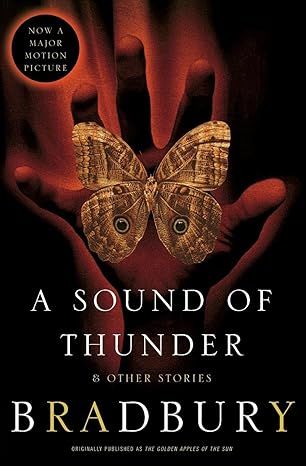
A Sound of Thunder and Other Stories
4.5
-
524
$13.09
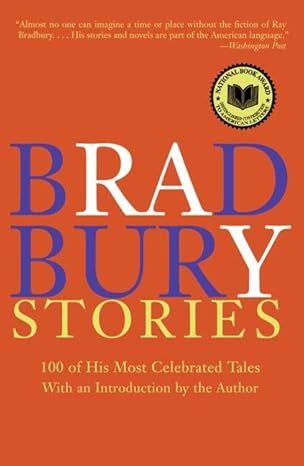
Bradbury Stories: 100 of His Most Celebrated Tales
4.7
-
1,363
$11.60
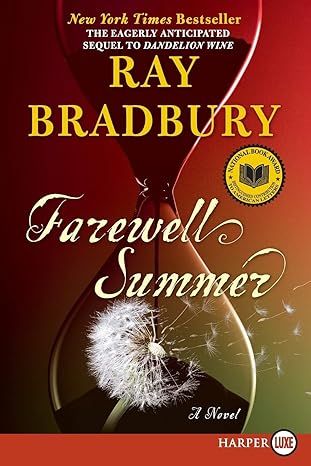
Farewell Summer
4.3
-
731
$0.99
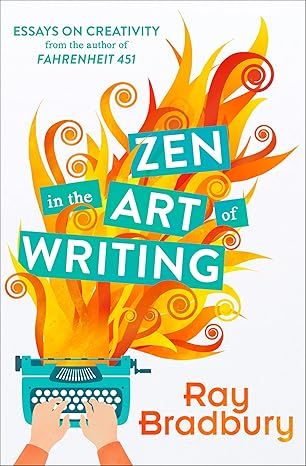
Zen in the Art of Writing
4.4
-
1,527
$14.33
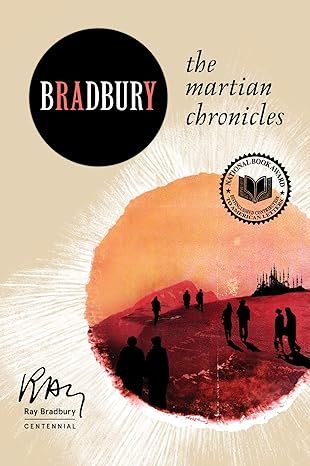
The Martian Chronicles
4.5
-
7,293
$0.99
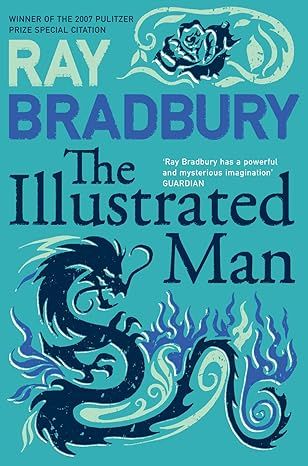
The Illustrated Man (Flamingo Modern Classics)
4.6
-
4,344
$9.31
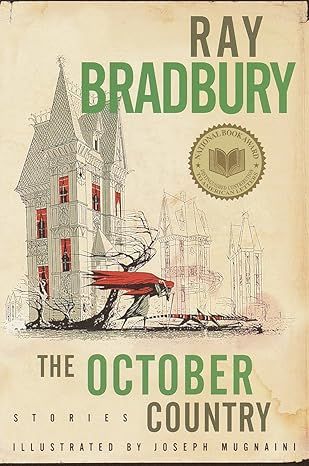
The October Country: Stories
4.6
-
1,736
$12.99
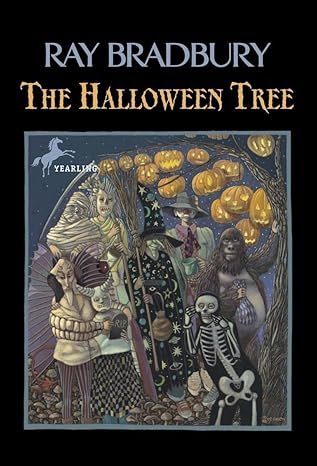
The Halloween Tree
4.6
-
3,112
$1.99
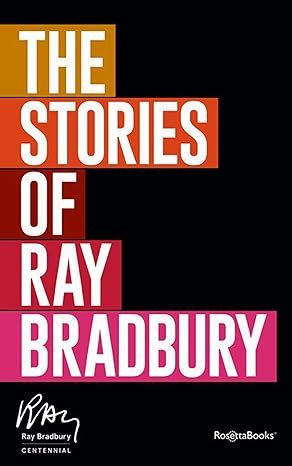
The Stories of Ray Bradbury: Introduction by Christopher Buckley (Everyman's Library Contemporary Classics Series)
4.7
-
1,003
$2.99
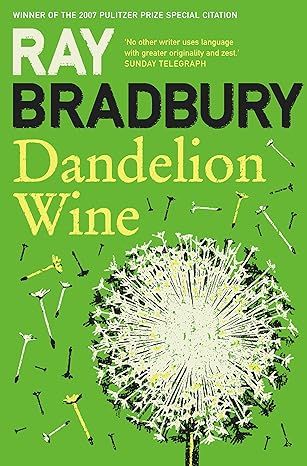
Dandelion Wine (English and French Edition)
4.5
-
3,529
$14.36
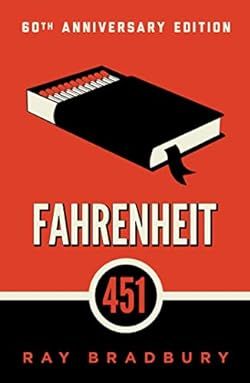
Fahrenheit 451
4.6
-
52,920
$4.68
Best Sellers

The Tuscan Child
4.2
-
100,022
$8.39

The Thursday Murder Club: A Novel (A Thursday Murder Club Mystery)
4.3
-
155,575
$6.33

Sapiens: A Brief History of Humankind
4.6
-
140,302
$13.49

The Butterfly Garden (The Collector, 1)
4.3
-
88,556
$9.59

Things We Hide from the Light (Knockemout Series, 2)
4.4
-
94,890
$11.66

The Last Thing He Told Me: A Novel
4.3
-
154,085
$2.99

The Perfect Marriage: A Completely Gripping Psychological Suspense
4.3
-
143,196
$9.47

The Coworker
4.1
-
80,003
$13.48

First Lie Wins: A Novel (Random House Large Print)
4.3
-
54,062
$14.99

Mile High (Windy City Series Book 1)
4.4
-
59,745
$16.19

Layla
4.2
-
107,613
$8.99

The Locked Door
4.4
-
94,673
$8.53
